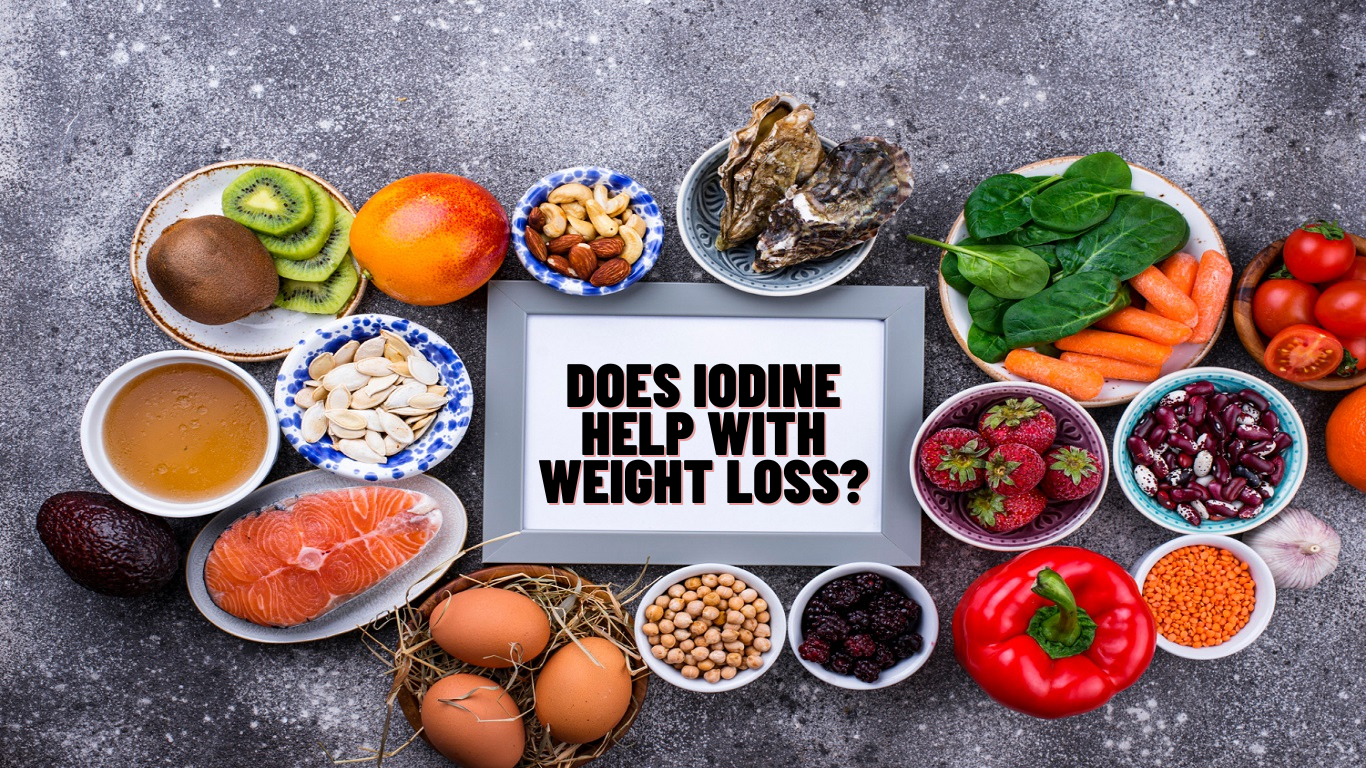This article is based on scientific evidence, written by experts and fact-checked by experts.

Iodine has gained a lot of traction as a weight loss solution recently. It is an essential trace mineral that our thyroid gland requires in order to produce life-sustaining hormones. We have seen it being added to many weight-loss supplements, but there has not really been any concrete consensus about its efficacy in the matter.
We have analysed dozens of scientific analyses to find whether iodine really helps you with weight loss and its effectiveness. Let’s dive right in.
What Is Iodine?
Iodine is not some kind of molecule, protein, or enzyme that can be produced by the intricate chemistry lab that is the human body. Iodine is one of the essential minerals that you need to consume externally in your diet since it is an important factor in the functioning of our thyroid gland. The thyroid gland mainly controls our metabolic functions but is also involved in bone and brain development in infancy.
If the body’s iodine levels are imbalance (too high or too low), it will not be able to produce the required amount of thyroid hormones which will throw our metabolism out of whack, usually making it much slower than normal, which has a laundry list of negative effects such as; increased body weight, brain fog, lethargy, weakening of our bones, and in extreme cases can lead to hyperthyroidism (enlargement of the thyroid gland in the neck).
How Does Iodine Make The Thyroid Gland Work?

If you are interested in diving deep into the microbiology of how Iodine is absorbed and used by the thyroid gland, then check out this paper. For the purposes of this article, we will keep it much simpler.
Iodine is transported to the thyroid gland, where it is trapped by the follicular cells of the gland. Then through a complex process, Tetraiodothyronine (T4) and Triiodothyronine (T3) are released into the bloodstream and eventually, 80% of the daily production is excreted. Iodine is a major part of these T3 and T4 hormones, requiring at least 80 mg per day. Aside from these, there are some other hormones released by the thyroid that also require around 40 mg of Iodine.
How Does Iodine Contribute To A Healthy Body Weight?

It’s a very simple equation. Iodine is crucial for a healthy thyroid gland. A healthy thyroid gland is crucial for a healthy metabolism. When we are on a weight loss program, one of the main aspects we target is an improvement in our metabolic rate.
A high metabolic rate leads to more energy utilisation even in sedentary states, which coupled with a low calorie diet can trigger the burning of fat cells as a source of energy.
A higher metabolism also provides us with a stable source of energy which keeps us feeling mentally focused and physically charged, both of which are vital when we are trying to remain active on a low-calorie diet.
But remember, this does not mean that you should blindly take iodine supplements hoping to supercharge your thyroid gland and your metabolism in turn. We mentioned earlier that too much iodine is just as harmful as too little.
When And How To Supplement With Iodine?
For most people, an iodine supplement is completely unnecessary and they should focus on other aspects of their diet and lifestyle to improve their weight loss results.
This is because the daily requirement is so low, 120-150 mcg per day. And this is easily attainable if you consume the required amount of iodine-enriched salt every day. If you do not, then you should strongly consider switching to such salt. Our food supply is generally depleted of most essential nutrients these days, but should still contain some amount of iodine too.
The few cases where iodine supplementation is really necessary are:
1. When a medical test clearly shows that you are dangerously deficient, and your doctor recommends an iodine supplement. If you suspect any thyroid issues, immediately go for a check-up.
2. If you are on a low-salt diet. But consider adding iodine-rich foods to your diet before reaching for a supplement bottle. These include:
a. Cod fish: 158 mcg
b. 1 cup of Greek yoghurt: 120 mcg
c. 1 cup of milk: 85 mcg
d. 1 hard-boiled egg: 26 mcg
Data sourced from NIH
3. If you live in an inland area and do not consume iodine-enriched salt. (since most of the earth’s iodine is present in the ocean, coastal areas have more iodine in their soil)
Please note that pregnant and breastfeeding mothers need significantly more iodine (220 and 290 mcg respectively) and should not go on a low-salt diet.
Final Thoughts
The final answer is, yes! Iodine plays a major role in maintaining a healthy body weight. But as far as supplementation goes, only the most severely deficient people need it. Eating a balanced diet with a moderate amount of table salt is all you need to more than cover your daily requirements.



